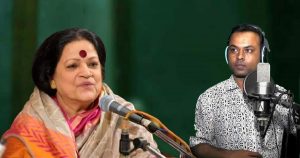There are certain customs, established over many decades, to uphold when declaring a coup.
A rough-hewn general in a crisp uniform reads out a statement on state TV in which he declares that, reluctantly, the armed forces have decided to step in to save the country.Gen al-Sisi’s declaration on 3 July in Cairo followed a script, and a look, which goes back at least four decades. First of of all, the general has to get his image right. He needs a well pressed uniform, decked with medals. He needs a podium, or, at the very least, a solid table.
Sunglasses are optional. The general’s look as he reads his declaration may become the defining image of his country to the outside world (it will certainly be the image for which he is most remembered by his own people).
The coup statement must follow a certain format. The general should stress that the military is responding to its patriotic duty. Above all, the coup leader must avoid calling his actions a coup – a word which may make him look like a gangster. More often, he will prefer to used the word “intervention”.
In September 1973, Gen August Pinochet of Chile and his fellow junta members pioneered the art of the coup statement. The four military leaders appeared in uniform behind a solid table.
“The armed forces of Chile acted today solely motivated by patriotic inspiration to save the country from the chaos into which it was being plunged by the Marxist government of Salvador Allende,” announced Gen Pinochet in staccato voice. “The junta will maintain judicial power… the chambers will remain in recess until further orders. That is all.”
His fellow junta member, Gustavo Leigh, added a few words helpful to future generals needing inspiration for their own declarations – patriotic duty, sacrifice, public support.
“In order to protect the sacred interests of the homeland we found ourselves obliged to take on the sad and painful mission which we have undertaken,” declared Gen Leigh. “We are not afraid. We know the enormous responsibility that will rest on our shoulders. But we are convinced, we are quite sure that the vast majority of the Chilean people is with us.”
The Chilean generals of 1973 decided to sit together, as did the Egyptians of 2013. This creates an appearance of equality and teamwork – but it can also create problems for the future. Chilean military officers had to make sure that doorways were sufficiently wide to allow the Chilean military leaders to walk four abreast during public appearances.
Eventually Gen Pinochet decided that he would rule on his own. He did so until 1990. More than 3,000 people were killed during his years of military rule.
Sometimes a general decides that it’s best to appear alone. In September 1980, the Turkish General Kenan Evren went on state TV in his uniform to declare an end to civilian government. He stuck to the standard coup declaration script.
“The Turkish Armed Forces had to take over the administration of the country in order to maintain the welfare and the happiness of the Turkish nation, to protect the unity of the country and the nation.
“We commanders, officers, non-commissioned officers and privates are ready to sacrifice our belongings, even our lives, for country and the welfare and happiness of the nation.”
Gen Evren’s declaration marked the start of three years of direct military rule in which an estimated 650,000 people were detained.
The standard format of a coup declaration can also be used to declare the failure of a coup. In February 1981, Spanish Civil Guard officers stormed the country’s parliament, in the hope of provoking a wider military uprising. King Juan Carlos decided to stop the coup attempt. Late at night, he put on his uniform as commander-in-chief, got himself a solid table and commandeered a slot on state TV.
“The Crown, symbol of permanence and unity of the country, cannot tolerate in any way actions or attitudes of people who intend to disrupt by force the democratic process settled by the voted constitution through referendum by the Spanish people,” the King declared.
Juan Carlos’ intervention helped to secure the survival of Spain’s young democracy. More than three decades later, the Kings’s speech in military uniform remains the single defining action of his reign.
Those who are on the wrong side of a coup – failed coup leaders or deposed presidents, for example – often try to get out their own statements as well. Egypt’s deposed President Morsi posted a video statement on the presidential website insisting that he was still the constitutional president – but his statement was quickly taken down.
Previous losers have opted for more traditional TV or radio outlets.
In February 1992, Lt Col Hugo Chavez tried to lead a coup against his government. His attempt failed. But Chavez argued that he should be allowed to broadcast on television a message to his fellow golpistas. (It’s a useful Spanish word, meaning “those who carry out a coup”.)
“Comrades: unfortunately, for now, the objectives we had set for ourselves were not achieved in the capital city,” Chavez declared.
“That is, those of us here in Caracas did not seize power. Where you are, you have performed very well, but now is the time for reflection. New opportunities will arise and the country has to head definitively toward a better future.”
The pointed “for now” in Chavez’s speech was noted. His words formed the basis of the political platform which would see him elected president of Venezuela six years later – an office he held until his death in 2013.
Perhaps the most famous losing statement was made by Chile’s President Salvador Allende, on the morning that he was deposed in September 1973. During the military attacks against him, Allende made a final radio broadcast from the Moneda presidential palace.
“Workers of my country, I have faith in Chile and its destiny,” Allende said. “Other men will overcome this dark and bitter moment when treason seeks to prevail. Go forward knowing that, sooner rather than later, the great avenues will open again where free men will walk to build a better society.”
Allende died later that day. His words of farewell are now engraved on a statue outside the presidential palace.
BBC Entertainment




